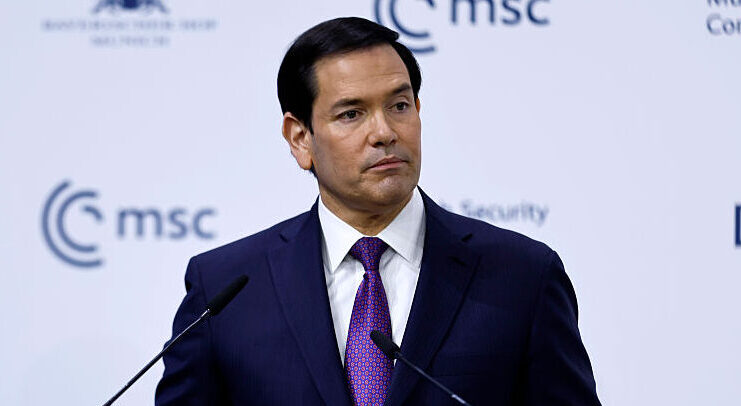Myth: Good Churches Don’t Stir Up Controversy

History has demonstrated there are a lot of smart people who believe many dumb things, especially when it comes to Christians, churches and cultural engagement.
What’s motivating or perpetuating these myths are debatable, especially since there can be a fine line between ignorance and arrogance. Our perspectives are born of our upbringing, experiences and associations. Ultimately, though, our conclusions should be derived from Scripture.
Nevertheless, one of the more pressing delusional and dangerous ideas that some hold to when it comes to Christian activism in the public square is that good churches don’t stir up controversy.
It’s just not true.
The mistakenness and consequences of this belief are profound. Christian cultural apathy is one of the leading reasons we’re in our current circumstances. Either an inability or unwillingness to confront evil and wickedness head on has led to immeasurable suffering and even apostasy over the years.
“Tolerance is the last virtue of a depraved society,” warned the late Dr. D. James Kennedy. “When you have an immoral society that has blatantly, proudly, violated all of the commandments of God, there is one last virtue they insist upon: tolerance for their immorality.”
When the Supreme Court legalized abortion in all 50 states in 1973, many Christian churches sat on their hands and said nothing. Some even supported the decision.
The Catholic Church immediately opposed the ruling, and after some time, were joined by their evangelical friends. But the more liberal denominations either suppressed the decision or never spoke up, fearing blowback from the pews. Fifty years and over sixty million lives later, we now see the dangers of going along to get along.
The sexual revolution has spawned widespread confusion, especially among young people, about the very nature and exclusivity of male and female. It’s a sensitive and layered topic, but many pastors remain reluctant to address it from the pulpit.
To justify their passivity, some Christians incorrectly cite the apostle Paul’s admonition to both Timothy and Titus to avoid “foolish” or “ignorant” controversies (Titus 3:9, 2 Tim. 2:23). Paul did preach those words, but context is important.
When it comes to today’s hot button issues, no reasonable or serious-minded person would consider the sanctity of life and the very nature of humanity to be “foolish” or “ignorant” concerns. Nor would the subject of marriage fall into that category. Instead, all these issues are foundational.
Read further into Paul’s second letter to Timothy and you’ll note he urges believers to “correct” or “instruct” his opponents with “gentleness” (2 Tim. 2:24). Our silence is not an option, but how we do it is part of our witness.
Once upon a time, churches were both the physical center of a city or town, as well as the metaphorical centerpiece of family life. One of the reasons this is no longer the case is because fewer churches are willing to tackle these pressing issues – abdicating their rightful role to cultural institutions like government, schools and entertainment.
Silence speaks its own language – and when Christians don’t speak up and out, the enemy will enthusiastically fill the vacuum.
Fear of being labeled “Christian nationalists” silences and sidelines too many from engaging in perfectly legal and critical activities such as voter registration drives, issue advocacy and even addressing moral issues from the pulpit.
Churches and Christians should be at odds with the spirit of the age, and willing to accept the consequences that will come with the controversy. Of course, not all controversy is equal. Wisdom is not just knowing what to say, but when and how to say it.
Thriving churches and faithful Christians will love deeply and proclaim God’s truth boldly. In doing so, they may very well ignite a squabble over sin or stir up a substantive conversation or debate over foundational and fundamental issues concerning humanity and eternity. If so, those are controversies worthy of our time, attention and reputation.
Image from Shutterstock.
ABOUT THE AUTHOR
Paul J. Batura is a writer and vice president of communications for Focus on the Family. He’s authored numerous books including “Chosen for Greatness: How Adoption Changes the World,” “Good Day! The Paul Harvey Story” and “Mentored by the King: Arnold Palmer's Success Lessons for Golf, Business, and Life.” Paul can be reached via email: Paul.Batura@fotf.org or Twitter @PaulBatura
Related Posts

10 Quotes from Secretary of State Marco Rubio’s Munich Address
February 16, 2026

Female Athletes Beg California Interscholastic Federation to Keep Boys Out of Girls Sports and Locker Rooms
February 16, 2026

On Presidents Day, Pray for President Trump
February 16, 2026

The Refreshing Patriotism of Olympian Jasmine Jones
February 13, 2026
